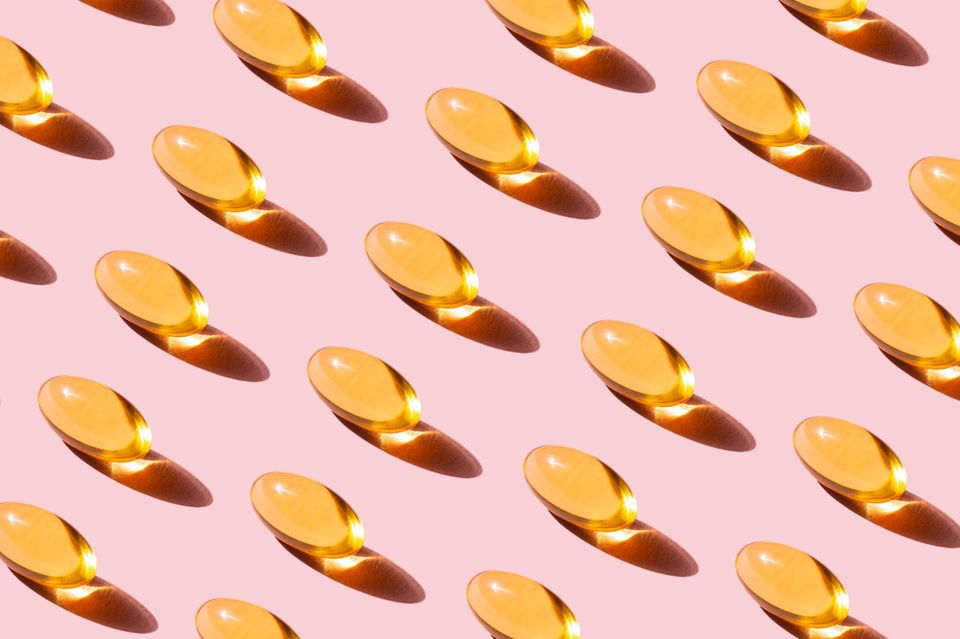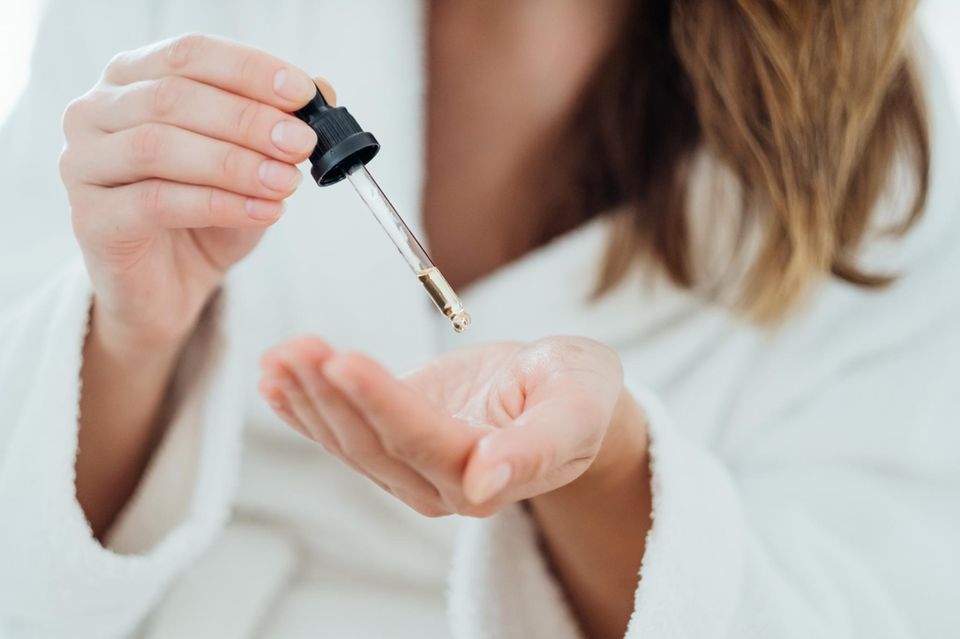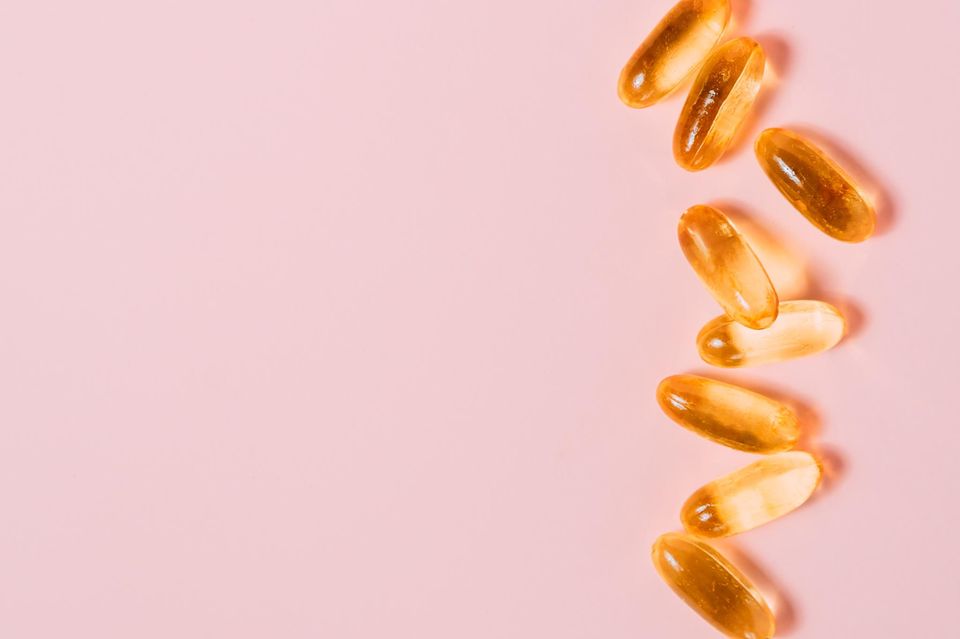Beautiful from the inside: This is what you really need! The big beauty guide with Dr. Yael Adler

There are countless nutritional supplements that are supposed to make us healthy, fit and toned. Nutritionist Dr. Yael Adler reveals which ones are really useful and how best to take them.
In 2023, we spent more than three billion euros on dietary supplements in pharmacies in Germany alone. But are all the powders and capsules actually of any use?
Dermatologist and nutritional doctor Dr. Yael Adler wasn't sure at first. "I was skeptical about what would reach the body and what would be excreted. The research situation isn't comparable to that of the pharmaceutical industry," she says. "But for several years now, I've been regularly testing my patients' blood and often find a lack of micronutrients, i.e. certain trace elements, vitamins, minerals or omega fatty acids. If these are replenished with the help of nutritional supplements, I regularly see acne, rosacea or hair loss heal. It's fascinating."
Dr. Yael Adler often finds micronutrient deficiencies in her patients.
© Mensent Photography / Getty Images
However, for Dr. Adler, it is crucial that the medication is used in a targeted manner and in the correct dosage. The doctor therefore only recommends combination preparations with several micronutrients or plant extracts sometimes. "I usually write down individual substances because I can dose them more flexibly and I don't want to include substances that the patient doesn't need." In this case, a blood sample from the doctor is a good idea. After all, there can be too much of some micronutrients, such as fat-soluble vitamins.
Also important: dietary supplements are not a substitute for a healthy diet. "But if you give them as a supplement, for example with the information: 'You should eat more pulses, nuts, green leafy vegetables or prunes', then that is ideal."
Six for (almost) all casesThere are micronutrients where most people benefit from the extra portions contained in food supplements. Iodine is one such example. However, we usually absorb it via table salt enriched with it. Dr. Yael Adler has selected six other nutrients for us that have proven effective in her practice.

What they can do: These vitamins work together to protect blood vessels and bones, thus preventing osteoporosis. Vitamin D, a hormone, can help to brighten your mood, strengthen your immune system and reduce the risk of some types of cancer. Skin cell metabolism and hair growth are improved.
How they are dosed: Adults (with healthy kidneys) take between 2000 and 4000 units of vitamin D3 per day. Vitamin K2 should contain around 50 to 200 micrograms. "Studies have shown that daily intake has a better effect than a weekly dose," says Dr. Adler.
Caution: Since the vitamins are fat-soluble, take them as oil-containing drops, capsules or with a meal.
Dr. Yael Adler has selected six nutrients for us that have proven effective in her practice.
© Mariia Siurtukova/Getty Images
What it can do: Even with normal magnesium levels, the supplement can help: It can improve sleep, digestion and wound healing, it supports the heart, muscles, mitochondria - and is also involved in calcium utilization and thus prevents osteoporosis.
How to dose it: Take about 300 to 400 milligrams in the evening, not with metals such as iron. If you get diarrhea, reduce to about 150 mg.
Attention: Magnesium types with -citrate, -gluconate, -malate or lactate at the end are particularly bioavailable.
seleniumWhat it can do: Many people are really deficient in this trace element, even though it is involved in a whole host of important processes. It supports the immune system, detoxification, protects cells and, together with iodine, is involved in the production of thyroid hormones, which in turn are important for metabolism, digestion, bones and the nervous system. Skin and hair also benefit from selenium.
How it is dosed: 50 to 100 micrograms daily.
Note: Certain types of selenium, such as selenomethionine, can be taken with a meal. Others, such as sodium selenite, should be taken one or two hours apart.
zincWhat it can do: It is involved in around 300 enzyme reactions in the body and thus influences wound healing and the function of all the senses. Zinc also supports the immune system by catching cell-damaging free radicals. It also helps against dry skin and in the formation of firming collagen.
How it is dosed: Rather in a low dose of ten to 25 milligrams.
Attention: "After three months, a break is recommended so that the copper level in the blood does not drop," says Dr. Adler.
Omega 3What they can do: These fatty acids are building blocks of cell membranes, support the work of our nerve cells and can even prevent Alzheimer's. They also strengthen the immune system and have an anti-inflammatory effect. This is why they can have a positive effect on skin diseases such as acne. For Dr. Adler, they (along with vitamin D/K2) are the basis of a well-nourished body.
How to dose them: One to two grams per day.
Caution: It is better to take it with a meal containing fats. The omega-3 fatty acids eicosapentaenoic acid (EPA) and docosahexaenoic acid (DHA) are more effective than linoleic acid from plant sources. Also, do not eat too many omega-6 fatty acids (found in sunflower oil, safflower oil, and ready-made products).
For special operationsSometimes the body is somehow weakened, the skin is crazy and the hair is thinning. Here too, temporary treatments with vitamins and trace elements can bring us back into balance
Life is demanding and the body is exposed to many viruses. It is particularly important to support the body.
© Anastasia Gubinskaya/Getty Images
Often tired? This is often due to an iron deficiency, especially in menstruating women. Since the metal can accumulate in the liver, it is best to have your iron levels checked with a blood test. If you are lacking energy, it is also helpful to avoid spikes in your blood sugar levels. This can be done with fiber, for example, as this ensures that sugar is released more slowly. "I recommend a tablespoon of acacia fiber every day," says Dr. Adler. "It also strengthens the intestinal microbiome and thus the metabolism and immune system, the body can absorb micronutrients better and your mood can also improve."
ironWhat it can do: By replenishing the body's own reserves, it helps against fatigue, but also against hair loss or acne.
How it is dosed: The range of the recommended amount is large and depends on the iron level in the blood; an average is about ten to 100 milligrams per day.
Caution: If you are sensitive to iron, it is best to take it in the form of capsules, which only release it in the small intestine. Coffee can affect absorption, so leave an hour or two between intakes. Vitamin C, on the other hand, increases absorption and improves tolerance.
Strengthening the immune systemLife is particularly demanding, and the body is exposed to many viruses. Antioxidants can help because they bind cell-damaging free radicals. The best way to get these is through colorful fruit, kiwi and vegetables such as broccoli or red peppers. Food supplements can be particularly useful as a cure - even in summer as support against UV radiation. However, Dr. Adler advises against taking them on a long-term basis: "The body must have some oxidative stress in order to produce radical scavengers itself. If the body always receives high doses of these in pill form, it will weaken." Fermented foods or probiotics can strengthen the immune system during or after taking antibiotics.
vitamin CWhat it can do: Supports the immune system by scavenging free radicals, as well as the formation of firming collagen, which strengthens connective tissue.
How it is dosed: 500 milligrams twice a day. The vitamin only stays in the body for about twelve hours and is then broken down and excreted. Or it is encapsulated in such a way that the 1000 milligrams are released gradually.
Caution: Coffee can also reduce absorption. So leave at least an hour between both.
Give skin + hair building materialsIf the body does not have enough nutrients available, this first affects less vital parts such as skin and hair. Which nutritional supplements can be useful here? In addition to the nutrients already discussed, such as zinc, selenium and iron, there are also the amino acids arginine and collagen. Also helpful: silicon or, in the case of a proven deficiency, B vitamins, especially biotin. Thinning hair is one of the few cases in which Dr. Yael Adler relies on combination preparations that help stabilize the hair shaft and support the metabolism of the hair root. "But be careful not to use several combination preparations at the same time. Some people end up taking very high nutrient doses because they take everything twice."
collagenWhat it can do: Studies have shown that skin, hair and nails benefit from it. The complexion is better moisturized. Collagen supplements can also counteract age-related degradation in the body and thus have a preventative effect.
How to dose it: It is best to take it as a course of at least four weeks, about five to eight grams daily.
Attention: The collagen should be hydrolyzed, then it is easily bioavailable. So that it can be reassembled in the body, take vitamin C with it.
Brigitte
brigitte









